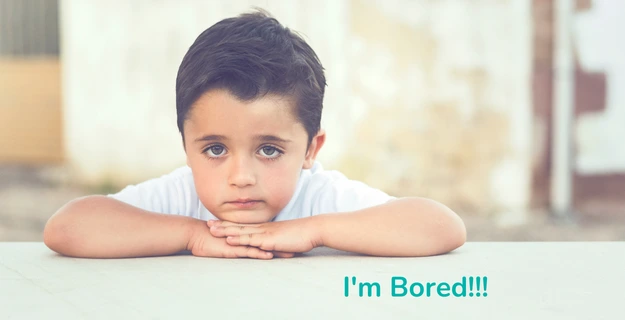Have you started something you adore such as painting, cooking, or watching a movie, and ended up feeling bored and monotonous? Or As a parent, have you experienced your kids not being excited for too long with the brand-new jigsaw puzzle you recently bought? Or Have you observed little babies wanting to seek more than a rattle after a period of time? Or Have you been around elderly people, who struggle to entertain themselves and end up wanting to be in your space? Or simply are you struggling to entertain your children for a longer period of time just because they are ‘getting bored’?!
Boredom is a phenomenon easier to describe than define.
As per the psychoanalytic perspective, boredom appears to be a state of drive-tension, struggles to establish an inner motivation to do something, in which the drive-aims are repressed; therefore one turns to the external world for help in the struggle against repression or simply dealing with boredom.
As much as this concept holds true, it is also extremely challenging to keep children entertained for a longer period of time. Although the brain is capable of producing great ideas, it may also experience fatigue. Boredom could be that space where children experience continuous thoughts running around in their tiny brains and mighty minds with statements such as ‘this isn’t a great thing’ or ‘this isn’t making me happy’ or ‘I am not really liking this activity’ and ‘I need something better’.These statements journey around with great intensity passing signals such as ‘i don’t know what to do? or ‘I don’t have anything to do?’ or simply ‘I don’t have anything to play’.
But, boredom is healthy! Boredom is good! Boredom is necessary! For parents, it is the management and smooth transition of that critical phase.
Boredom is just the time and space between ideas and sometimes,
the wellspring of genius.-Janet Lansbury.
Boredom could be a powerful learning tool. Much of parenting and the social circle is surrounded by providing stimulus to children in varied different ways. It is important to allow them to create their own stimulus around them in order to be self-reliant and deal with boredom. The idea here is to just be patient and wait for the passage of time, to let the creativity flow rapidly. If children are allowed to be, despite being bored, they will create, produce, and explore new ideas!
Here are quick 5 reasons why children get bored!
1. Gadgets today have made it worse! Electronic devices have been successful in providing the highest sensory stimuli to humans, with light, colors, novelty, and great music with motion. Children experience boredom as they don’t really find anything superior to gadgets to satisfy all their senses, at once!
Tip: Try to replace the screen time with activities that are multi-sensory in nature. Activities that involve all senses of listening, seeing, touching, and motion. Depending upon the age, the activities could be chosen. It’s hard, but get them off those screens!
2. They are used to ‘being entertained’. Parents often feel it is their lifelong purpose of keeping their children entertained in all possible ways. Mostly, parents could also use gadgets to keep children at bay, thereby continuing the vicious cycle.
Tip: Doing nothing is okay! It is vital to allow children to be in quiet spaces and entertain themselves with whatever is available, which often sparks creative learning.
3. They are not taught to be all by themselves, or be alone. Being able to deal with boredom all alone is a life skill. All of us have a limited attention span, go low on energy, and struggle to deal with anything for long and it is important to address it bravely.
Tip: Allow children to be on their own surrounded by things they like, and let them create opportunities to entertain themselves, all you have to do is sit back and observe from a corner.
4. They are dependent on ideas. There could be a grave possibility that they are into anchored learning rather than free play. Parents and stakeholders could avoid telling them ‘what to do?’, and allow time to think, and make independent decisions.
Tip: Try not to provide options as the boredom hits! Let them look around and discover what stimulates them the most on their own.
5. They are used to forever companions. At some point, there could be situations where children have to be on their own. Boredom is preparing them for independence, perhaps! Not all children can deal with boredom easily. Gradually fading the adults’ presence could work well in children showing resistance to play alone or engaging in free play.
Tip: Participate effectively in the activities, then step aside. Do so gradually.
Initially, if boredom hits and children have no idea what to do, they can be taught, supported, and guided to redirect behavior, converting boredom to create diversity in thinking. Boredom is like a bucket that needs to be filled by the child. For little ones, parents could assist by gradually fading, and for higher graders communication could help to guide them through. There could be innumerable activities out there to keep children engaged. What to play can be taught, but how to think, how to deal, and what to think cannot be possibly taught, till they are left to themselves to create, explore and produce!
Cheers!



